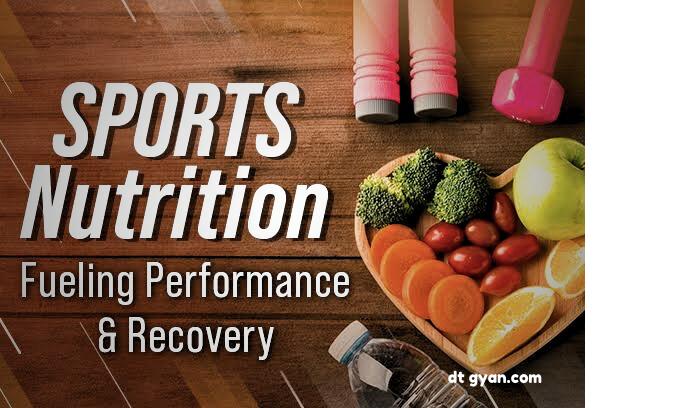
“Nutrition Tips for Athletes: Fueling for Peak Performance”
Introduction
Nutrition plays a crucial role in an athlete’s performance. It’s not just about eating enough calories; Nutrition Tips for Athletes: Fueling for Peak Performance fueling the body with the proper nutrients to optimize energy levels, enhance recovery, and support overall health. Whether you’re a weekend warrior or a professional competitor, paying attention to your diet can significantly affect your athletic performance.
Understanding the Athlete’s Body
Athletes have unique nutritional needs due to their high physical activity and energy expenditure levels. Understanding how the body utilizes nutrients during exercise is critical to developing an effective nutrition plan. Macronutrients like carbohydrates, proteins, and fats are the primary energy sources for athletic performance.
Carbohydrates are the body’s preferred fuel source during exercise, especially for high-intensity activities. They are stored in the muscles and liver as glycogen, essential for maintaining endurance and delaying fatigue. Protein is necessary for muscle repair and growth, making it crucial for athletes looking to build strength and recover from intense training sessions. Fats also play a role in providing energy, particularly during more extended-duration activities like endurance events.
Pre-Workout Nutrition
The timing and composition of pre-workout meals and snacks can significantly impact an athlete’s performance. Consuming a balanced meal containing carbohydrates, protein, and a small amount of fat 2-3 hours before exercise can provide the necessary energy without causing discomfort during physical activity. For endurance athletes, carbohydrate loading in the days leading up to a competition can help maximize glycogen stores and improve performance.
Hydration is also critical before a workout, as even mild dehydration can impair performance and increase the risk of heat-related illnesses. Drinking water and electrolyte-rich beverages like sports can help maintain fluid balance and prevent dehydration during exercise.
During-Workout Nutrition
During prolonged exercise lasting more than 60 minutes, it’s essential to replenish lost fluids and provide additional fuel to sustain performance. Sports drinks containing carbohydrates and electrolytes can help maintain blood sugar levels and replace sodium and potassium lost through sweat. Water is usually sufficient for hydration for shorter workouts, but it’s still essential to drink regularly to prevent dehydration.
In addition to fluids, athletes may consume quick energy sources like energy gels, chews, or bars during longer workouts to provide an immediate source of carbohydrates. These convenient snacks are easily digestible and can help maintain energy levels during extended periods of physical activity.
Post-Workout Recovery
The post-workout period, often called the “recovery window,” is critical for refueling the body and promoting muscle repair. Consuming a combination of carbohydrates and protein within 30-60 minutes after exercise can help replenish glycogen stores and stimulate muscle protein synthesis.
Including high-quality protein sources such as lean meats, poultry, fish, eggs, dairy products, or plant-based alternatives in post-workout meals or snacks can support muscle recovery and adaptation. Additionally, incorporating foods rich in vitamins and minerals, such as fruits, vegetables, whole grains, and nuts, can help support overall health and recovery.
Meal Planning for Athletes
Creating a well-rounded nutrition plan for athletes involves balancing meals with various nutrient-dense foods. Emphasizing whole foods like fruits, vegetables, whole grains, lean proteins, and healthy fats can provide the necessary nutrients to support athletic performance and overall well-being.
It’s essential to consider the timing of meals and snacks around training sessions and competitions to ensure adequate energy availability during exercise. Eating a balanced meal containing carbohydrates, protein, and fat 2-3 hours before exercise and refueling with a combination of carbohydrates and protein afterward can help optimize performance and recovery.
Special Considerations for Endurance Athletes
Endurance athletes, such as marathon runners, cyclists, and triathletes, have unique nutritional needs due to the prolonged nature of their events. Consuming a high-carbohydrate diet leading up to a competition can maximize glycogen stores and provide the necessary energy to sustain performance.
However, it’s essential to experiment with different nutrition strategies during training to determine what works best for your body. Avoiding gastrointestinal distress during exercise is crucial, so practicing fueling strategies and testing different foods and beverages may be necessary to find what agrees with your stomach.
Nutrition for Strength and Power Athletes
Strength and power athletes, such as weightlifters, sprinters, and throwers, have different nutritional requirements than endurance athletes. Protein intake is essential for muscle repair and growth, so consuming enough protein throughout the day is necessary, especially after strength training sessions.
Timing meals and snacks around weightlifting sessions can maximize muscle protein synthesis and support recovery. Including healthy fats, such as avocados, nuts, seeds, and olive oil, can also provide a source of energy and support overall health.
Supplements for Athletic Performance
While a well-balanced diet should provide the necessary nutrients for most athletes, some may supplement their nutrition with additional vitamins, minerals, or sports-specific supplements. Joint supplements used by athletes include creatine, branched-chain amino acids (BCAAs), and caffeine.
It’s essential to approach supplementation cautiously and consult with a healthcare professional or registered dietitian before adding new supplements to your regimen. While some supplements offer benefits, others may have potential risks or interactions with medications.
Eating for Injury Prevention and Recovery
Nutrition also plays a crucial role in injury prevention and recovery for athletes. Consuming nutrients that support connective tissue health, such as collagen, vitamin C, and zinc, can help maintain the integrity of muscles, tendons, and ligaments.
Incorporating anti-inflammatory foods like fatty fish, berries, turmeric, and leafy greens into your diet can help reduce inflammation and promote faster recovery from intense training sessions. Additionally, maintaining a healthy body weight through a balanced diet and regular exercise can help reduce the risk of overuse injuries and support overall athletic performance.
Mental Health and Nutrition
The connection between diet and mental health is well-established, and this relationship also extends to athletic performance. Eating a balanced diet that includes a variety of nutrients can help support mood regulation and cognitive function, which are essential for maintaining focus and motivation during training and competition.
Stress and anxiety can also impact nutritional choices, leading to emotional eating or disordered eating behaviors. Developing healthy coping strategies, such as mindfulness, relaxation techniques, and seeking support from friends, family, or a mental health professional, can help manage stress and promote a positive relationship with food.
The Role of a Registered Dietitian
Nutrition Tips for Athletes: Fueling for Peak Performance with a registered dietitian can be invaluable for athletes looking to optimize their nutrition for peak performance. A dietitian can assess your needs, preferences, and goals and develop a personalized nutrition plan tailored to your sport and training regimen.
In addition to providing guidance on meal planning and supplementation, a dietitian can also help monitor your progress, make adjustments to your nutrition plan as needed, and provide ongoing support and accountability to help you reach your full athletic potential.
Real-Life Examples and Success Stories
Many athletes have experienced significant improvements in their performance by optimizing their nutrition. Whether breaking personal records, winning championships, or simply feeling better during workouts, fueling your body with the proper nutrients can make a profound difference in your athletic journey.
Staying Consistent with Nutrition Habits
Consistency is vital when it comes to athletes’ nutrition. Building healthy eating habits and sticking to them over the long term can significantly impact performance and overall well-being. Meal prep and planning can ensure that nutritious options are readily available, even on busy training days or during competitions.
Overcoming common barriers to healthy eating, such as time constraints, budget limitations, or lack of access to nutritious foods, may require creativity and resourcefulness. Finding simple, affordable recipes that can be prepared in advance and incorporating versatile ingredients like grains, beans, and vegetables can help make healthy eating more accessible and sustainable.
Building a supportive network of coaches, teammates, and professionals can also provide valuable encouragement and accountability on your nutrition journey. Surrounding yourself with like-minded individuals who prioritize health and fitness can reinforce positive habits and motivate you to stay on track with your nutrition goals.
Conclusion
Nutrition is a cornerstone of athletic performance, and fueling your body with the proper nutrients can significantly improve your ability to train effectively, recover fully, and compete at your best. By understanding the unique nutritional needs of athletes, prioritizing balanced meals and snacks, and seeking guidance from qualified professionals, you can optimize your nutrition for peak performance and achieve your goals in sports and fitness.
Listen to your body, experiment with different nutrition strategies, and adjust as needed to find what works best. With dedication, consistency, and a commitment to healthy eating, you can unlock your full athletic potential and reach new heights in your athletic journey.



